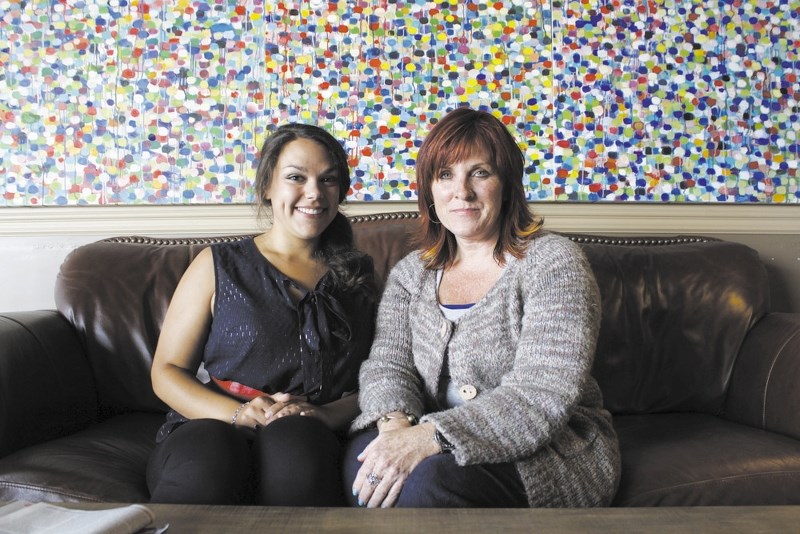For Lora Weir and Sabrine Koudmani, volunteers with Cochrane & Area Victim Services Society, their work provides the lifeline for people dealing with sometimes-unimaginable hardship.
“In the heat of the moment when something tragic has just happened to you or your family,” Weir said, “first off, you’re not thinking clearly and secondly, you don’t even know where to start.”
When tragedy strikes – a car crash, a sudden death, or a family torn apart by domestic violence – the aftermath for those affected can be devastating. Often victims don’t know where to reach out for help and support. Volunteers like Weir and Koudmani act as that source.
“It depends on the individual, and you can sense sometimes they don’t want to talk about it,” Koudmani said. “Sometimes they just want someone there. Other times they just want someone to vent to. Sometimes they need practical help.”
One example she cited was a situation where a volunteer was called out to a sudden death and began the process of organizing personal documents of the deceased, such as the birth certificate.
“Little things like that can help to make the situation more manageable.”
Typically, the RCMP will send a referral after an incident to Victim Services, which could take place at any hour of the day (volunteers are on call every day of the year). After attending to the situation with the affected person, they may pursue a followup.
How quickly they receive and respond to a referral depends on the situation. In the case of a sudden death, volunteers respond immediately.
Because of the intense emotional nature of the work, volunteers receive extensive training in a wide range of areas, from suicide prevention and domestic violence, to training on the court and legal systems, as well as phone-crisis intervention. Volunteers also go through a lengthy security clearance process that can take months. What Weir stressed was that at the core of their training was how to really get through to a person in distress in a humane way.
“How to actually interact with people on a level that isn’t going to be offensive; to really reach them,” she said.
One of the difficult parts of the work is seeing a victim continue to be caught in a traumatic cycle.
“We can be there to give them tools to help them be safe, we can talk to the RCMP if they’re in danger but…” Koudmani said.
“If the cycle continues, it’s hard to swallow,” Weir finished.
Koudmani said that it’s not so much the work they do that goes unnoticed, it’s the organization that often doesn’t get much attention.
“Until I started volunteering, I had no idea that existed. I think our services is one of those services that you don’t really know about it until you need it.”
After hearing and seeing people dealing with tragedy, violence and misfortune, it could be assumed volunteers would have to harden themselves emotionally to process the hardship.
“I think it’s the opposite. If you harden it, you can’t relate,” Weir said. “There’s always people that rally and your faith in humankind is really established.”
Koudmani said one of the most satisfying rewards from the job is being able to help people help themselves.
“Sometimes when they feel hopeless, I feel like there’s always that little nugget that just comes in and you see someone who’s empowered.”
In 2014, volunteers clocked just over 9,000 hours – roughly 173 hours a week.
Both Koudmani and Weir have full-time careers outside of Victim Services.
Koudmani works in strategic planning and is pursuing a psychology degree.
Weir is a small business owner in Cochrane and going to school for trichology (a branch of dermatology).
But both said Victim Services is flexible to their schedules.
Although it might not be for everyone, Weir was adamant that people who are thinking of volunteering should give it some thought. “It’s so worth it and it’s so needed.”
For more information on the work that volunteers like Weir and Koudmani are engaged in, visit cochranevictimservices.com.




